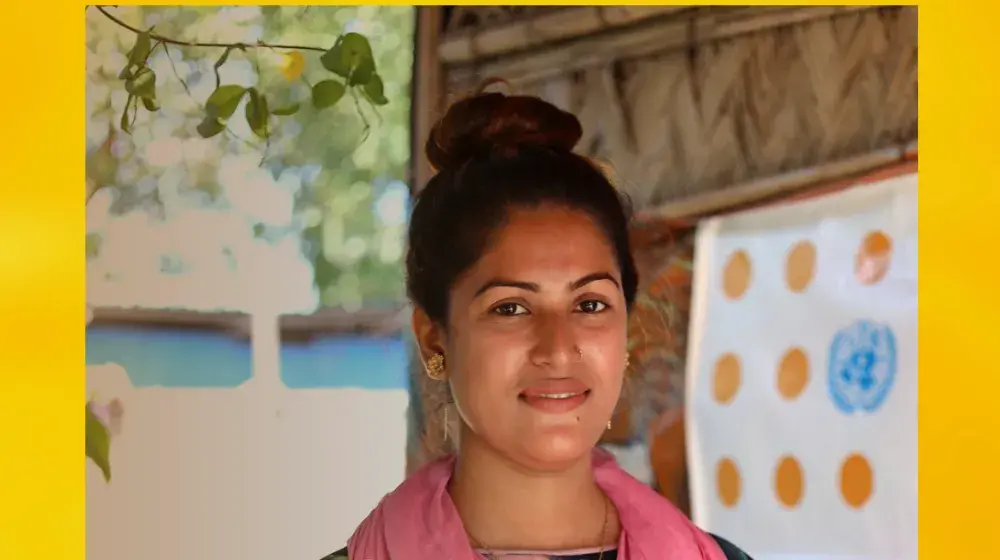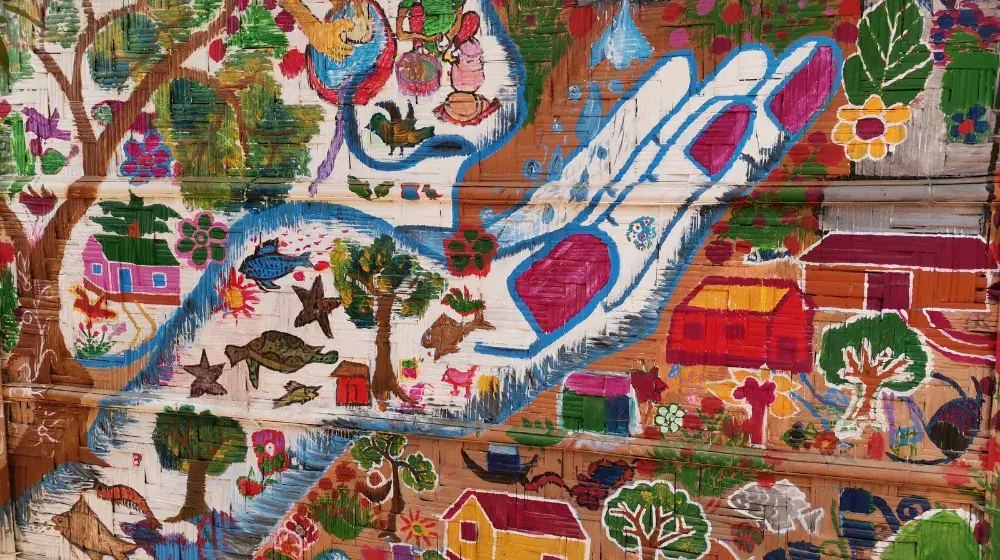Civil society played an instrumental role in shaping the ICPD agenda, and has been meaningfully engaged in the efforts to advance the Programme of Action (PoA), as well as in the ground level implementation of activities pertaining to it.
Recognizing the centrality of Civil Society Organizations (CSOs) in the realization of the ICPD PoA, UNFPA Bangladesh has convened a CSO consultation meeting on ICPD25, on the road to the Nairobi Summit.
Representatives from almost 50 CSOs and NGOs in Bangladesh took part in the consultation meeting, where they deliberated over the 12 Draft Nairobi Commitments, which are directly linked to Agenda 2030 and the SDGs. Through an interactive group exercise, participants reflected on priority commitments that Bangladesh should make towards these global commitments in the Nairobi Summit.
The session was inaugurated by UNFPA Representative in Bangladesh Dr. Asa Torkelsson; in her introductory remarks, she delineated the links between the ICPD PoA and the Sustainable Development Goals (SDGs). Highlighting the progress made in Bangladesh over the last 25 years, Dr. Torkelsson shared the objectives and expectations from the meeting, and urged CSOs to work together with all stakeholders toward achieving the overarching goal of ICPD, which is to help secure recognition of sexual and reproductive health and rights (SRHR) as human rights that all people everywhere can realise and enjoy safely, without fear of discrimination and violence.
The CSO Consultation meeting, part of UNFPA Bangladesh’s comprehensive stakeholder consultation and engagement strategy on ICPD25, offered an inclusive platform for CSOs to come together around the universally applicable principle of rights and choices for all vis-a-vis the ICPD PoA. In her opening speech, Dr. Asa Torkelsson said the consultation would help to “i) develop a civil society vision on progress made during the past 25 years since ICPD in Bangladesh, as well as the unmet needs and challenges; ii) offer an inclusive platform for CSOs that will allow them to come together around the universally applicable principle of rights and choices for all vis-a-vis the ICPD PoA and to streamline the 12 draft Nairobi Commitments with CSO inputs, and integrate their reflections into the commitments. And to do so, strengthened commitment of local and national CSOs and NGOs comes as a key entry point.”
Over the last few months, the International Steering Committee of the Nairobi Summit has done extensive listening to and consulting with different stakeholders about the Nairobi Summit. Not surprisingly, when engaging with such a diverse group of stakeholders, many diverse issues and expectations came to the fore. But, also some global common ground has emerged, including, but not exclusively, around the “three zeros,” the need to look at international and domestic financing, the focus on young people, paying attention to increased demographic diversity, and the harnessing of the demographic dividend.
Mahboob-E-Alam, Chief (a.i) of Population, Planning and Research (PPR) at UNFPA Bangladesh, then presented an overview of ICPD and why it is indispensable to the achievement of rights and choices for all. Mr. Alam elaborated on UNFPA’s global and national stakeholder consultation strategy leading up to the Nairobi Summit. Dr. Eiko Narita, Deputy Representative of UNFPA Bangladesh moderated the interactive group exercise and the plenary discussion that followed.
The culmination of these consultations came in as a set of 12 draft global commitments, which are directly linked to Agenda 2030 and the SDGs, that provide a solid basis to reach global common ground to move the ICPD agenda forward and accelerate its fulfilment. In his presentation, Mr. Alam elaborated on the 12 Draft Nairobi Commitments with a view to provide a basis for the discussion and interactive group activity that followed. The presentation ended with a question and answer session regarding the 12 Draft Nairobi Commitments.
In the session moderated by the Deputy Representative of UNFPA Bangladesh, Dr. Eiko Narita, participants were divided into five groups based on the five themes of the upcoming Nairobi Summit, namely:
- Essential SRHR package of interventions and UHC
- Creating financing momentum
- Demographic diversity and sustainable development
- GBV and harmful practices
- SRHR in humanitarian and fragile contexts
At the outset of the session, Dr. Narita asked each of the groups to reflect on the global commitments relevant to their themes, and contextualize them in the Bangladesh landscape. Through an hour-long intensive discussion, the groups came up with sets of recommendations and observations, which were reported at the end of the session.
KEY RECOMMENDATIONS :
The key recommendations made in the end of the group exercise are presented here in accordance with their themes:
Group 1: Essential SRHR package of interventions and UHC
- Include an overarching inclusion statement at the at the outset of the commitments, specifically spelling out the inclusion of marginalized women (including women with disabilities)
- Strengthen the capacity of educators and community leaders to better cater to the needs of adolescents and youth regarding their SRHR knowledge and services
- Focus on the SRHR needs of urban marginalized population
- Focus on the fertility rate in urban areas
- Address issues of cultural sensitivity when working on SRHR issues
Group 2: Gender Based Violence and Harmful practices
- Bring an end to the culture of impunity and non-implementation of existing laws, while bridging the procedural gaps in accessing justice for GBV survivors
- Undertake stronger advocacy efforts for the provision of Victim and Witness Protection Act for GBV cases
- Mitigate the loopholes in the Special Provision in Child Marriage Restraint Act, which is frequently abused
- Address the rights and needs of transgender population, and ensure quality education as well as gender equality for them
- Make a provision for earmarked annual budget for survivors of GBV
- Focus on women migrants, address their needs and plights in order to create a better working environment for them
- Legally instill the culture of consent, especially in regard to decisions involving women’s bodies and lives
Group 3: Creating financing momentum
- Devise national level costing implementation and budget monitoring plans to efficiently realize the ICPD PoA
- Restructure the overall SRHR programming framework
- Increase focus on the timeliness and effectiveness of Family Planning and Reproductive Health programming
- Address the needs of disabled people in the budgetary system along with the other left behind groups
- Strengthen public-private coordination for service delivery, and align the result frameworks
- Increase public expenditure in line with the GDP growth for SRHR issues
- Strengthen capacity of civil servants to enable them to better utilize the allocated budget and improve the quality of service delivery
Group 4: Demographic diversity and sustainable development
- Control language used in the 12 draft Nairobi Commitments need to be replaced with support language
- Urge government to explicitly mention the inclusion of marginalized population in development planning and programming
- Make provision for rigorous and reliable data on people with disabilities
- Take measures to increase access of female youth with disability and young disabled mothers to pre and post-natal care
- Address issues around labour migration, while taking measures to respond to their needs and challenges
Group 5: SRHR in Humanitarian and Fragile Contexts
- Prioritize the menstrual health of women and girls in humanitarian interventions
- Put focus on the needs of young and adolescents, disabled, transgender and gender diverse population, as well as old aged group in humanitarian response
- Strengthen the monitoring framework for humanitarian interventions
- Environmental issues are also humanitarian issues, hence should be addressed in ICPD25




